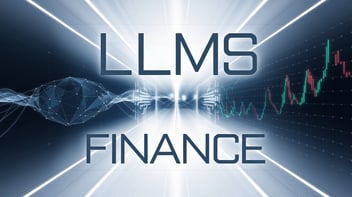In the rapidly evolving landscape of artificial intelligence, Large Language Models (LLMs) have emerged as powerful tools capable of transforming various aspects of enterprise operations. As businesses continue to explore and implement these advanced AI systems, we're witnessing a new era of innovation and efficiency across industries.
The potential of LLMs extends far beyond basic text generation and simple chatbots. Today's enterprises are leveraging these sophisticated models to tackle complex challenges, streamline operations, and unlock new opportunities for growth. From breaking down language barriers in global communications to enhancing fraud detection in financial services, LLMs are proving to be versatile and indispensable assets in the modern business toolkit.
Advanced Enterprise LLM Use Cases
- Breaking Down Language Barriers
LLMs are revolutionizing global business communication:
Multilingual content creation: LLMs can generate content in multiple languages, enabling businesses to engage with diverse audiences more effectively.
- Fraud Detection and Prevention
Financial institutions and e-commerce platforms are leveraging LLMs for enhanced security:
Real-time monitoring: By continuously processing incoming data, LLM-powered systems can flag potential fraud attempts instantly, allowing for immediate intervention.
- Supply Chain Optimization
LLMs are transforming supply chain management:
- Product Development and Innovation
R&D teams are harnessing the power of LLMs to drive innovation:
Idea generation: By analyzing successful products and market gaps, LLMs can assist in brainstorming innovative product ideas.
- Legal and Compliance Support
Law firms and corporate legal departments are finding valuable applications for LLMs:
The healthcare industry is benefiting from LLM use cases in various ways:
Medical research assistance: LLMs can analyze vast amounts of medical literature, helping researchers stay updated on the latest findings and identify potential areas for study.
- Financial Analysis and Reporting
Financial institutions are leveraging LLMs for improved analysis and reporting:
Implementing LLMs in Enterprise Settings
While the potential of enterprise LLM use cases is vast, successful implementation requires careful planning:
Integration with existing systems: For maximum efficiency, LLMs should be integrated seamlessly with existing enterprise software and workflows.
Conclusion
Enterprise LLM use cases are rapidly expanding, offering innovative solutions to complex business challenges. From breaking down language barriers to optimizing supply chains and driving product innovation, LLMs are proving to be versatile tools that can enhance efficiency and competitiveness across various industries. As technology continues to advance, we can expect even more sophisticated enterprise LLM use cases to emerge,
further transforming the business landscape.
Facilitating AI Integration with Pacific Data Integrators (PDI)
Integrating Generative AI and Large Language Models (LLMs) into retail can seem daunting, but with Pacific Data Integrators (PDI), it becomes a streamlined and supported journey. Partnering with PDI ensures a seamless transition and enduring success, turning challenges into opportunities. Discover how PDI's tailored retail solutions can transform your business by consulting with our experts today.
You can book a consultation today by visiting us at PDI.
Posted by PDI Marketing Team
Pacific Data Integrators Offers Unique Data Solutions Leveraging AI/ML, Large Language Models (Open AI: GPT-4, Meta: Llama2, Databricks: Dolly), Cloud, Data Management and Analytics Technologies, Helping Leading Organizations Solve Their Critical Business Challenges, Drive Data Driven Insights, Improve Decision-Making, and Achieve Business Objectives.






